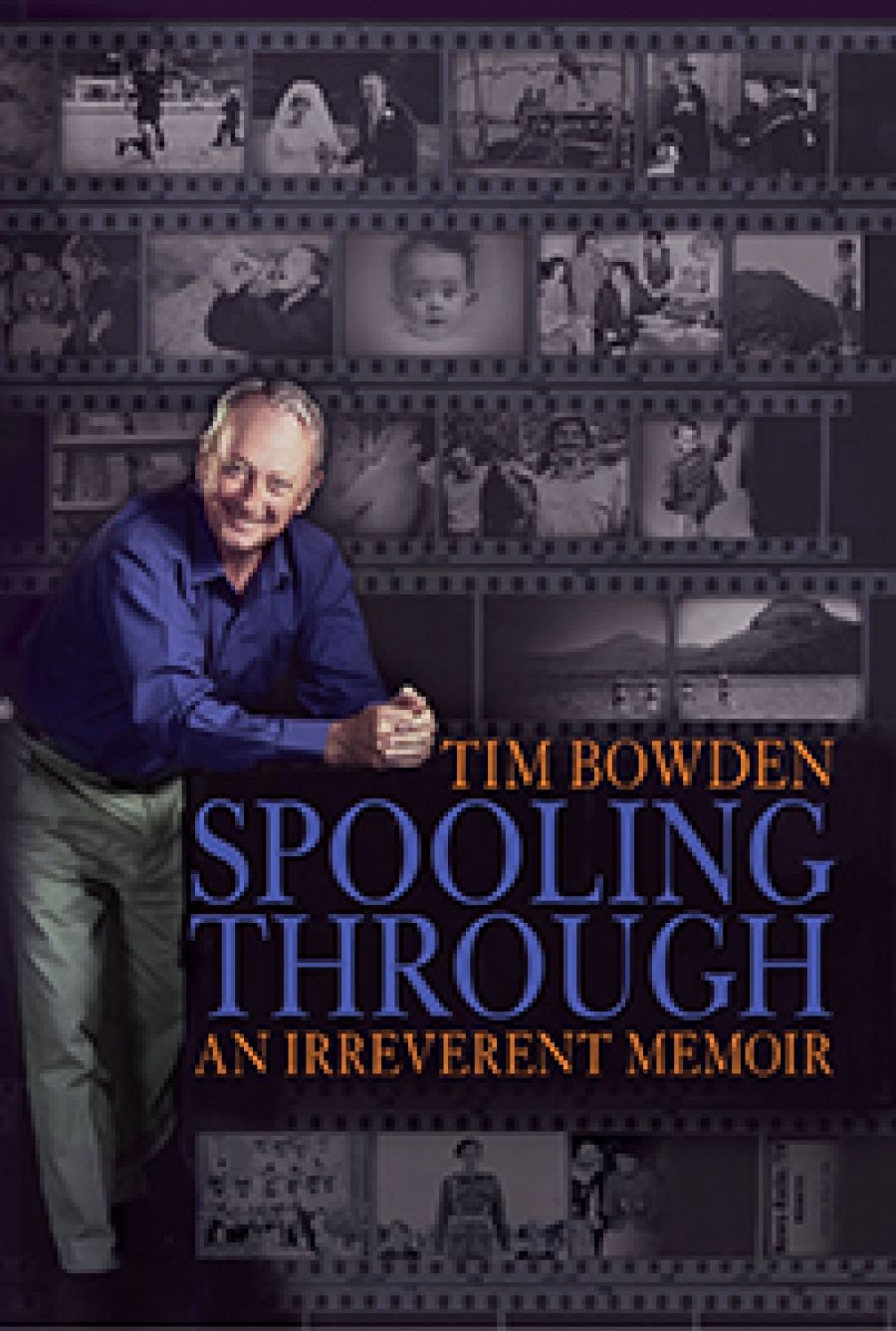
- Free Article: No
- Contents Category: Memoir
- Review Article: Yes
- Article Title: Back Chat
- Online Only: No
- Custom Highlight Text:
Anyone who remembers the amiable host of the ABC’s television show Backchat, which he compèred for eight years from 1986, will not be surprised to learn that Tim Bowden has written a breezily readable memoir. Its pages seem to turn of their own volition. In the foreword, Maeve Binchy daringly asks: ‘Who are the right people to do a memoir?’ Actually, it’s probably not so daring, as Binchy had no doubt read Bowden’s chronicle and knew he qualified as one of the ‘right people’. Two criteria leap to mind. The writer needs to exhibit a character and personality you’d be happy to keep company with for 300 or so pages. In addition, the reader – this one, anyway – wants a complementary sense of the times of the life in the foreground.
- Book 1 Title: Spooling Through
- Book 1 Subtitle: An irreverent memoir
- Book 1 Biblio: Allen & Unwin, $29.95 pb, 346 pp
- Book 1 Readings Link: https://www.booktopia.com.au/spooling-through-tim-bowden/book/9781741144574.html
Bowden certainly meets these key criteria. Spooling Through, without being one of the great autobiographies, is an agreeably good-humoured, sometimes blokey response to what came the way of a young Tasmanian with a quizzical interest in the world at large. At least, he was young for longer than most and seems, even at the end, not merely to have settled into his anecdotage. He is engagingly self-deprecating about his areas of incompetence (such as yachting) without this seeming to be a bid for undeserved readerly support. Like all Australian biographers, he needs to tell us about early sexual ignorance and exploration, but he doesn’t make a meal of it. As a long-time employee of the ABC, he sounds like someone you could bear to work with; but also someone who would from time to time decide that enough was enough, that the pricks who were running things were just that and, as the Bible doesn’t quite suggest, you should kick against them.
Bowden grew up in Hobart and was, in his view, scarcely educated at Hutchins School, where he had a teacher who was ‘follicly challenged’. He visited his Aunt Dot in Sale, Victoria, where she lived with the Bishop and his wife, who was ‘probably’ the love of her life, and where Bowden had his first radio experience. Returning to Hobart, he cut his teeth on the Mercury as a cub reporter and once tried to pass himself off as sophisticated by asking a barman: ‘What kind of Drambuie do you have?’ Then, having also completed his university degree, England beckoned, as it home-like did in those distant days, and his career as an international radio (and later television) journalist took off.
As for the times of the life, Bowden has evoked a broad and shifting canvas with considerable vividness. Born in 1937, he distils the business of growing up in the 1950s with an acuteness that places before the reader the bland well-being of that postwar decade, and the inevitability of the journey to England as the swinging sixties hove into view. He had a knack of being in crucial places at critical moments: in Singapore, for instance, when it failed to become part of the Malaysian federation; and in New York at the time of racial and student turmoil in the wake of the Vietnam disaster; then returning to Australia in 1969 on the cusp of the more sophisticated sense of nationhood that the 1970s would see into place. Some of his overseas experiences involved a measure of danger that he re-creates without pretending to be a hero.
He returned to Australia to host the ABC’s radio news programme PM and was later closely involved with the television equivalent, This Day Tonight. His major professional contribution seems to have lain in his insistence that such programmes should be presented by journalists rather than by announcers merely mouthing what was put before them. In a generally happy life, blessed with an enduring marriage and two children, he spent several decades with the ABC. A sometimes bewildering cast of characters passes before our eyes, some of them celebrities, such as the BBC’s Huw Wheldon (‘a tall, pompous man … I disliked him instantly’) and John Gorton (who ‘had actually behaved like a small “l” liberal rather than a large one’), some of them merely friends or, more rarely, foes in the political web of the ABC. While many of these people may be of only marginal interest to the lay reader, figures such as the humourless Wally Hamilton, the globe-trotting Talbot Duckmanton and the – in Bowden’s view – egregious Denis Warner emerge with a suddenly striking clarity that doesn’t always work in their favour.
Like many an autobiographer before him, Bowden some-times overestimates how much one wants to know of the japesy aspects of his early life or of escapades that may have been fun at the time but which belong to the ‘you probably had to be there’ category for full appreciation. The overall effect is chronological-anecdotal, rather than more eloquently shaped. While carping, one also notes a couple of errors, such as the reference to George VI’s life ‘slowly slipping away’ when he means George V’s. But he maintains a high level of such unpretentious good humour that he keeps the reader effortlessly with him. It is a life worth the telling, professionally useful and privately fulfilling. And you can scarcely take exception to a man who could play tunes on his teeth – and who did so on national television.


Comments powered by CComment